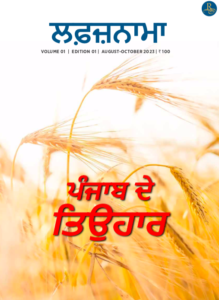IN THE NAME OF SUFFERING– THE GREAT LEVELLER

“When suffering knocks at your door and you say there is no seat for him, he tells you not to worry because he has brought his own stool.”
(Chinua Achebe)
Ever since I discovered Chinua Achebe about twenty years ago, I have been amazed at the fortitude of the man in the face of suffering. His wise cracks may seem comical but hold the most profound truths behind them. Suffering is as inevitable as Death. Suffering is universal too. No man on this earth has the power to transfer his suffering unto another. If this was even remotely possible, every parent would suffer on behalf of his child. The rich would hire the poor to suffer in their place. The boss would allocate his suffering to his subordinates and the manipulating would design the innocent to suffer in their stead. But suffering is unbiased and impartial. It is a great leveller like the Sickle Bearer!
A friend once cried, “Why do I have to suffer, I have done nothing wrong?” I asked, “Are you different from others? Why do you expect special treatment?” One who has taken birth is bound to experience suffering by virtue of his existence in this world. Budhha termed it as ‘Sankhara-dukkha’ or the ‘suffering of existence’. The fundamental teachings of Buddhists refer to Four Noble Truths and the first and foremost among these truths is ‘Dukkha’ or suffering. Dukkha is further classified into three categories– Dukkha-dukkha; Viparinama-dukkha and Sankhara-dukkha. The first one relates to the physical and emotional suffering, the second is the suffering of change and the final, as mentioned previously, the suffering of existence. The Samkhya school of Hinduism calls it ‘Adidaivika’ suffering and the Bible terms it ‘Creation Suffering’– We hurt along with creation itself which groans while it waits to be renewed. (Romans 8:19-22)
When religions, sects and philosophers all over the world concur on the fact that suffering is inevitable, mortal beings have no escape but to accept it as a part of human existence. After acceptance comes fortitude and forbearance. Holy texts, saints, learned men of theology and autobiographies of great men act like Lighthouses– lighting the path and guiding us to safe harbours from the uncharted oceans of suffering. On the way they also offer advice on how man should lead a life of least resistance and bear suffering with courage and patience for Milton says, “They also serve, who stand and wait.”
Literature and performing arts, though not able to relieve one’s suffering, do offer succor and solace through exemplification and representation of suffering of others in print and in action. Stories of Gods, demi-gods and heroes undergoing suffering like ordinary men and women abound in literature which have been dramatized and staged around the world for centuries. Prometheus, the Greek God, suffered eternal punishment for defying Gods. He stole fire from the Titans to give it to humans which outraged the mighty Zeus who got Prometheus chained to a rock and sent an eagle to tear and eat his liver at night which re-grew every morning. Similarly, the sufferings of Bhishm in Mahabharata or Sita in Ramayana help one realize that suffering is inevitable for all– mortal or immortal.
When our favorite heroes and heroines suffer on screen, we empathize with them because their sufferings are imitations of our day-to-day struggles. Often, we cry at their tragedies, which leads to catharsis– the purgation of our own repressed emotions. A happy end, where the hero is able to surmount obstacles, makes us believe that someday we might also triumphantly assail through our sufferings while a tragic end assists us in surrendering to its universal prevalence and emerging stronger in the face of it. Suffering, therefore, leads us to the path of search for semblance in a meaningless world, as Nietzsche claims,
To live is to suffer, to survive is to find some meaning in the suffering.















